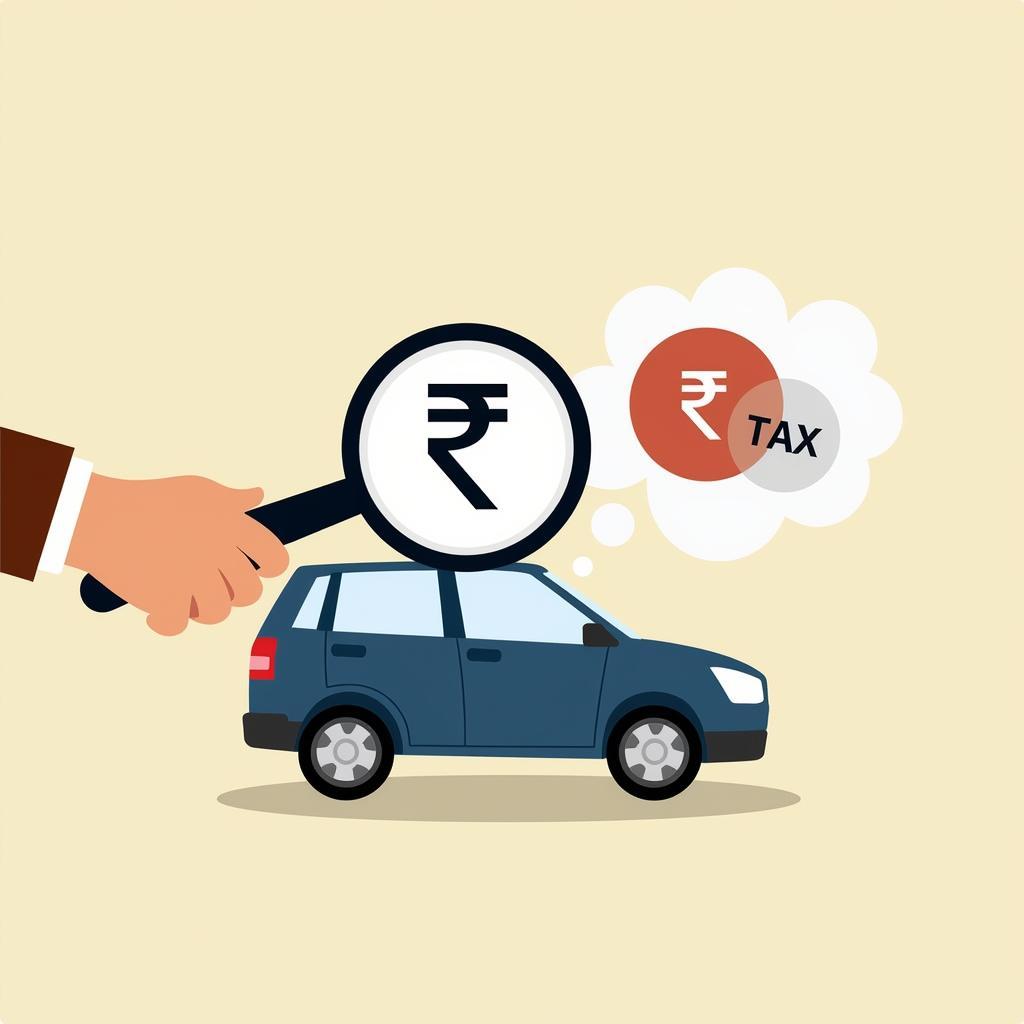Navigating the intricacies of company car regulations in India can be confusing. One common question that arises is: “Is Car Service Compulsory In Company In India?”. The answer, like many legal matters, is: it depends.
While there’s no single law mandating companies to provide car service for employees, several factors influence whether it becomes a necessity or a perk. Let’s delve into the specifics.
Factors Influencing Car Service Requirements
1. Nature of Business Operations:
For businesses heavily reliant on fieldwork, client visits, or inter-city travel, providing car service often becomes essential. Think sales teams, marketing executives, or consultants who require safe and reliable transportation for work purposes.
2. Employee Safety and Security:
Companies operating in remote areas, with late working hours, or requiring employees to travel alone might consider car service compulsory. This ensures the well-being and security of their workforce, particularly in situations where public transport is unreliable or unsafe.
3. Contractual Obligations:
Employment contracts often stipulate provisions for transportation. If a company explicitly mentions providing car service as part of the employment agreement, it becomes a binding obligation.
4. Company Policy:
Independent of legal requirements, companies can implement internal policies mandating car service based on their specific needs and values. This might stem from a desire to enhance employee satisfaction, project a professional image, or streamline logistics.
Legal and Tax Implications
Understanding the legal and tax implications surrounding company car service in India is crucial:
- Taxability: If a company provides car service primarily for personal use by employees, it can be considered a “perk” and attract income tax for the employee.
- Liability: Companies must ensure their car service providers have valid licenses, insurance, and adhere to safety regulations. This mitigates legal risks associated with accidents or mishaps during work-related travel.
 Image depicting tax implications of company car in India
Image depicting tax implications of company car in India
Expert Insight:
“Companies should draft clear policies outlining the scope of car service usage – specifying whether it’s strictly for business, limited personal use, or a combination of both,” advises Akash Sharma, a Senior HR Consultant at TalentPro India. “This transparency helps avoid disputes and ensures compliance with tax regulations.”
Alternatives to Company-Owned Car Service
Companies can explore alternatives to owning and maintaining a fleet of vehicles for employee transportation:
- Car Allowances: Offering employees a fixed monthly allowance for using their vehicles for work purposes is a common practice.
- Ride-Hailing Services: Partnering with ride-hailing platforms provides flexibility and cost-effectiveness, especially for occasional travel needs.
- Public Transportation Reimbursement: Encouraging employees to use public transport and reimbursing their expenses promotes sustainability and reduces logistical hassles.
Conclusion
The question of whether car service is compulsory in companies in India doesn’t have a simple yes or no answer. It hinges on a combination of factors ranging from business needs, employee safety concerns, contractual obligations, and internal company policies.
By carefully evaluating these aspects and understanding the associated legal and tax implications, companies can establish a clear and compliant car service policy that aligns with their operational requirements and employee well-being.
FAQs
1. Can an employee refuse company-provided car service in India?
An employee can discuss their preference with their employer. However, if car service is part of the employment contract or company policy, refusal might have consequences.
2. Are there specific regulations regarding driver qualifications for company car services?
While no specific nationwide regulations exist, companies must ensure drivers possess valid licenses and adhere to road safety norms.
3. How is the taxable value of car service for employees calculated in India?
The taxable value depends on factors like car engine capacity, fuel type, and city of residence. The Income Tax Department provides specific guidelines for calculation.
4. Can companies claim tax benefits for providing car service to employees?
Companies can claim depreciation on vehicles used for business purposes and input tax credit on GST paid for car maintenance and fuel expenses, subject to certain conditions.
5. What are the implications of using personal vehicles for work purposes without a car allowance?
Using personal vehicles for work without a car allowance can lead to disputes regarding fuel reimbursement, vehicle wear and tear, and liability in case of accidents.
Need More Help?
Have more questions about car service regulations or need assistance with vehicle diagnostics and maintenance? Contact our expert team at CarServiceRemote via WhatsApp: +1(641)206-8880 or Email: [email protected]. We’re available 24/7 to provide comprehensive support and guidance.
